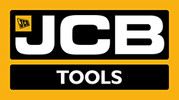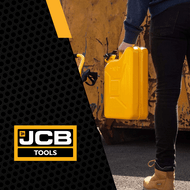JCB Tools New Professional, Heavy-Duty Jerry Cans and the Fascinating History of this Iconic Fuel Can!
Posted by JCB Tools UK on 26th May 2023
To celebrate the launch of JCB Tools new professional Jerry Cans we take a look at the fascinating history of the humble jerrycan!
The History of the Jerry Can
During World War I and II, German forces used a remarkable fuel container known as the Wehrmachtskanister, later named as the jerrycan by allied troops ( Jerry was a nickname used for Germans). Recognising its superiority over their own standard issue fuel cans, the allied forces quickly used this innovative and heavy-duty fuel can design.
In this JCB Tools blog post, we explore the unique features that set the jerry can apart and its enduring impact on military operations. We will also look at everyday uses and why the JCB Tools fuel cans are some of the leading Jerry Cans you can get today . But first…
What is a Jerrycan?
A Jerry can or Jerri can is a type of portable fuel can container that is designed to store and transport liquids, particularly hazardous fuels like petrol, diesel, and kerosene. It is known for its distinctive rectangular shape and innovative features that make it convenient and durable. It features a 20-liter capacity ( now available in many different sizes - the JCB Tools range includes 10 L and 20 L Jerry Cans), a slender profile, a three-part handle for easy carrying and passing, and a secure and efficient pouring spout. The jerry can's robust metal construction and sealing mechanisms prevent leaks, corrosion and helps withstand tough, rugged conditions. Over time, the jerry can has become a widely used container for various liquids and continues to be a staple piece of equipment in military operations, as well as in everyday applications such as transportation of fuel for outdoor machinery, and other liquids.

Innovative Design, Enhanced Capacity and Manoeuvrability:
Traditional fuel can designs faced several disadvantages, which the jerry cans like to JCB Tools design effectively address.
Unlike allied designs, the jerry can boasted a more voluminous 20-litre capacity while maintaining a slender profile. JCB Tools jerry cans now offer various capacity fuel cans to cater for changing modern requirements. Its distinctive three-part handle allowed for various gripping positions and enabled a person to carry two cans in one hand if necessary. This design facilitated rapid passing down a line, with subsequent handlers effortlessly grabbing the free handle. The JCB Tools Jerry Cans are designed with this in mind and are built with an ergonomic handle, strong steel and precision engineering manufacturing, making these a superior Jerry can to most on the market. Additionally, the handles acted as spout protection and secure points for straps or ropes. Moreover, the integrated breathing tube surrounding the handle improved flow efficiency and prevented sinking if dropped into water. JCB Tools jerry cans also come with an enhanced wide breather valve.
Self-sufficiency and Versatility:
The jerry can's spout featured an integrated cap and bayonet closure as in the case with JCB fuels cans, eliminating the need for additional tools, while its angled protuberance enabled easy pouring directly from the can, eliminating the requirement for a funnel.
The inclusion of a length of rubber hose for siphoning fuel was the only standard accessory. Moreover, thanks to its interior lining similar to beer barrels, the jerry can could be used for transporting drinking water and served multiple supply roles.
JCB advanced features include safety locking pins, bayonet closure as well as wide breather valved
Durability and Reliability:
Constructed from two interlocking stamped steel pieces welded together, the jerry can offer superior durability and reliability. Its design included large X-shaped indentations that accommodated temperature fluctuations, preventing leaks and structural damage. This feature proved particularly valuable in combating the swells and bursts experienced by British fuel cans in hot climates or warmer UK summers like the ones previously seen.
Jerry Can Influence on Military Operations and Enduring Popularity:
The jerry can played a pivotal role in German Blitzkrieg tactics during the early stages of World War II, allowing motorised divisions to rapidly move through Europe. Recognising its effectiveness, allied forces reverse-engineered the design and equipped their troops with jerry cans, solidifying its place as a staple piece of military equipment. Even today, next the generation and elevated designs like the JCB Tools heavy-duty Jerry can remain popular and sought-after world wide for their durability and ability to without stand tough conditions.
Everyday Applications and Safety Considerations of Jerry Cans:
The jerry can's versatility extends beyond military use, with many people relying on it as an essential tool for transporting liquids. While it finds diverse applications, it is commonly used in the UK for fuel transportation, especially for outdoor machinery like garden power tools and generators. To differentiate between various substances stored in jerry cans, such as water, petrol, diesel, and kerosene, they are available in a range of colours for easy identification by the user. The JCB Jerry cans come in bright yellow and have a flammable sign stamp on the side for convenience. Whilst there is no set colour code and remains at the users preference, the color yellow is commonly associated with flammable substances for easy identification.
However, it's important to adhere to safety regulations. In the UK, storing fuel in metal jerry cans above 30 litres is prohibited under the Petroleum Spirit (Motor Vehicles etc.) Regulations of 1929 and the Petroleum Spirit (Plastic Containers) Regulations of 1982. Instead, separate 10-litre or 20-litre containers are permissible. Your can store fuel at home adhering to the below restrictions:
- Plastic container - storing up to 10 litres
- Metal container - storing up to 20 litres
- Demountable fuel tank - storing up to 30 litres
Fuel should never be stored indoors, and proper labelling indicating its flammable nature is essential. For added safety, explosion-safe jerry cans, feature an internal honeycomb structure that disperses heat and prevents hot spots, meeting international safety standards. Always check latest advise about storing hazardous liquids and fuels.
Accessories for Convenience and Transport:
Several accessories are available to enhance the usability and transportability of jerry cans. Flexible and rigid pouring spouts enable precise pouring, while holders allow secure. JCB Jerry Cans are available with optional 15cm metal spout.
We hope you’ve found these tips helpful and remember: if you need any further advice, our team of experts is on-hand to help you, so just get in touch! If you have any questions please visit www.jcb-tools.co.uk/contact-us For expert advice or any questions you may have, you can give us a call on 01646 687 880, fill out the contact form here or drop us a message on any of our social media pages - Facebook, Instagram or Twitter.



